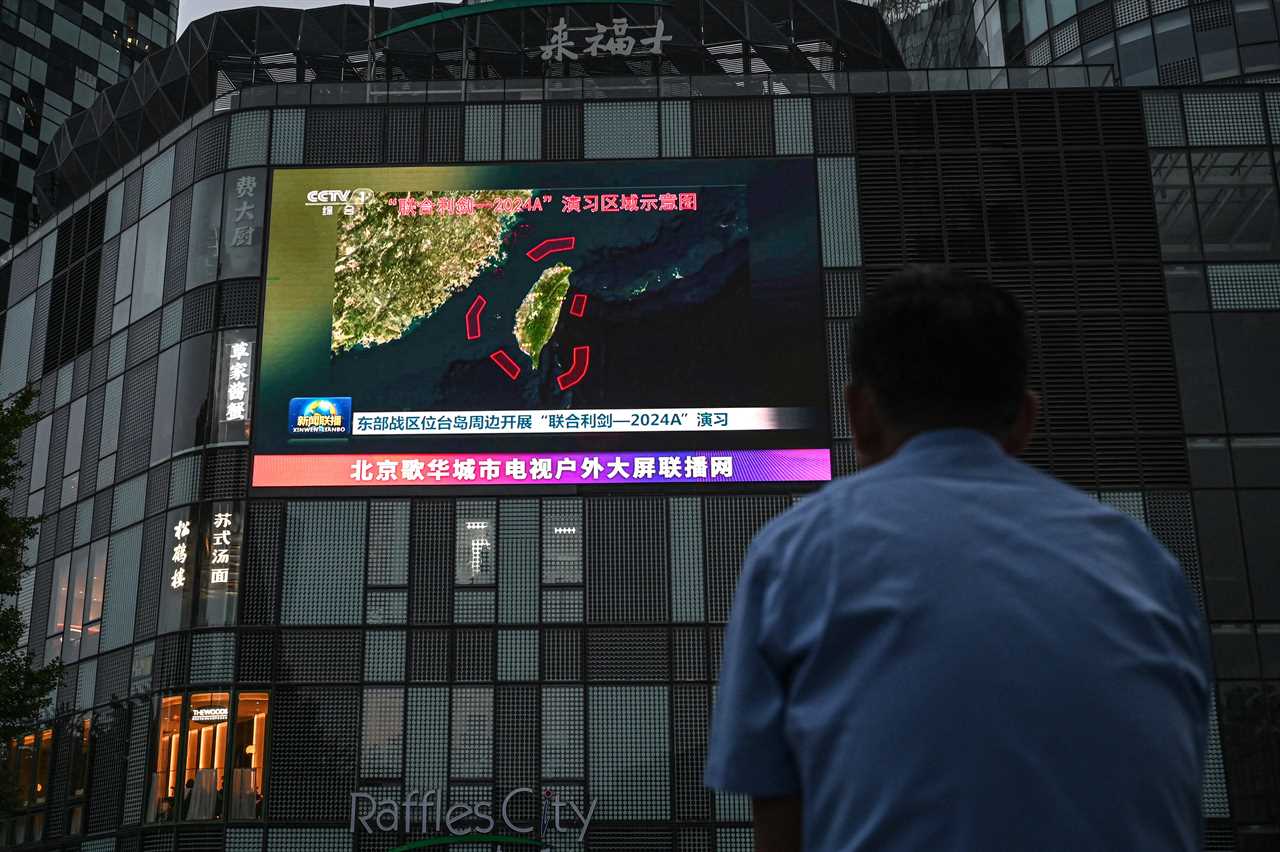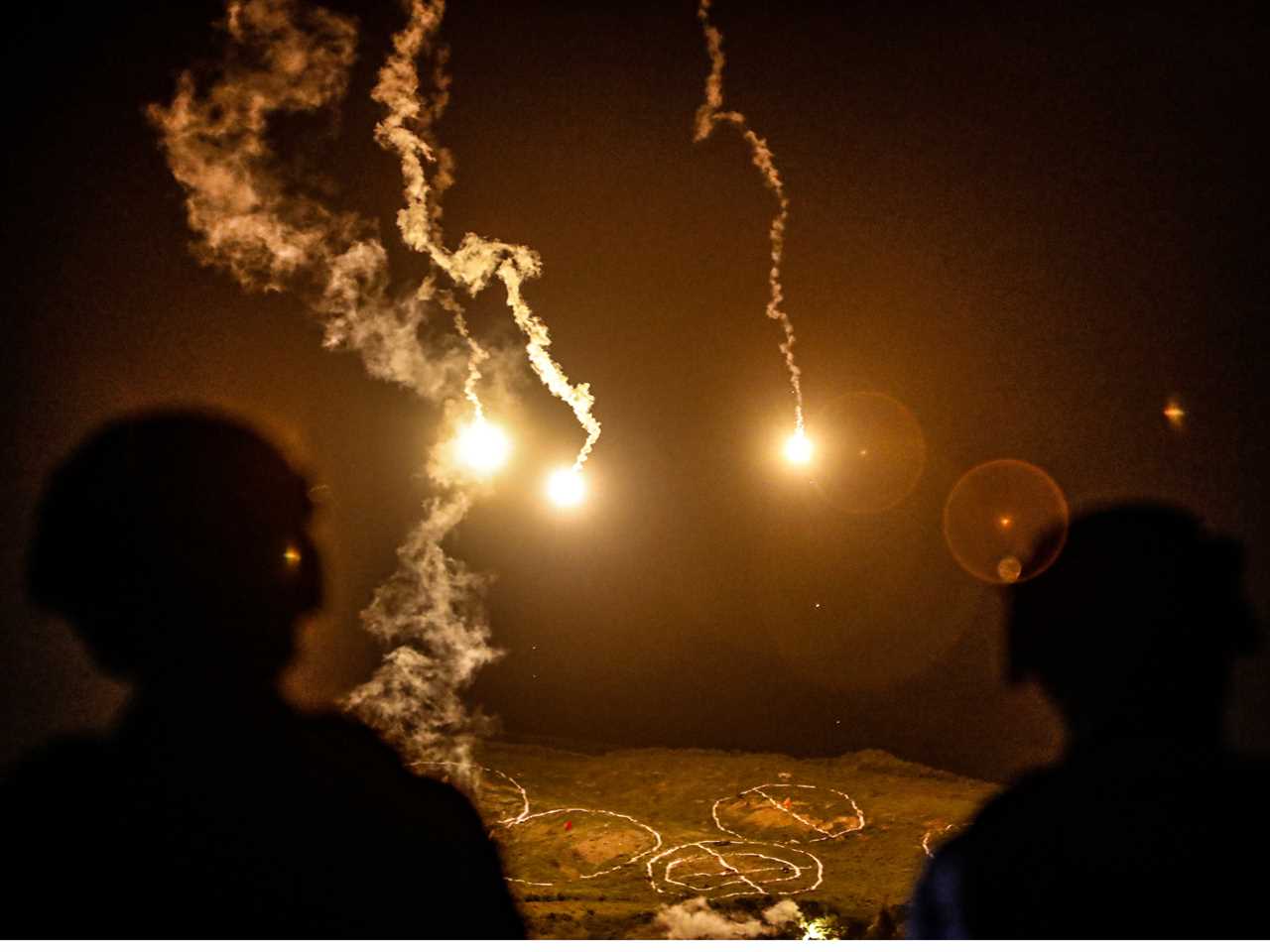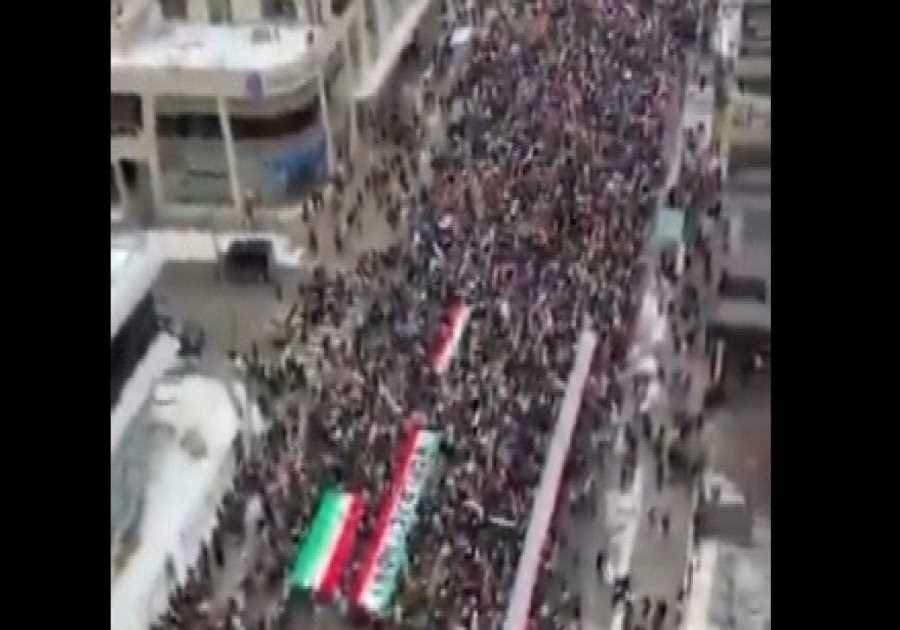Valya Egorshin/NurPhoto via Getty Images
- China began conducting military drills around Taiwan after Lai Ching-te became president.
- Chinese fighter jets, frigates, and destroyers have been active during the exercise.
- China's actions are seen as punishment for Taiwan's separatist stance amid rising tensions.
The Chinese armed forces began conducting large-scale military exercises around Taiwan on Thursday, just days after the island's newly elected president Lai Ching-te took office.
It's not the first time China has conducted a large exercise around Taiwan like this, but it is a noticeably large event. The move sends an unmistakable message to Taiwan, yields strategic benefits for Beijing, and sets a sour tone for Chinese-Taiwanese relations as a new president's term in office begins.
Exercise "Joint Sword" began Thursday morning, and it will last two days. The drills will focus on "joint sea-air combat readiness patrols, joint seizure of comprehensive battlefield control, and joint precision strikes on key targets," per Chinese state media reports on these exercises.
Taiwan's military reported that China deployed 33 aircraft, 16 Coast Guard vessels, and 15 Navy ships for the drill. In addition to surrounding Taiwan's main island, Chinese forces also executed drills in the waters around offshore islands Kinmen, Matsuri, Wuqiu, and Dongyin.
The Chinese exercises notably include mock strikes by fighter jets with live ammunition and drills with various naval vessels, including frigates and destroyers. Taiwan's defense ministry posted a video condemning Chinese actions, as well as showing the various locations around it where Chinese forces are operating.
Taiwan's military has responded to Chinese activities, dispatching ground, sea, and air forces to monitor the drills closely for escalation. Its defense ministry sharply criticized the drills, calling them "irrational provocations and actions that undermine regional peace and stability."
"We stand by with firm will and restraint. We seek no conflicts, but we will not shy away from one. We have the confidence to safeguard our national security," the ministry added.

JADE GAO/AFP via Getty Images
The Chinese military characterized the exercises as a "strong punishment for the separatist acts of Taiwan' independence forces," Chinese state media said in its reporting, also calling them "a stern warning against the interference and provocation by external forces," such as the US and Japan.
This kind of rhetoric, while typical for Beijing, follows the May 20 inauguration of Lai Ching-te, who served as the former vice president under Tsai Ing-wen.
Lai's win was seen as a historic move for Taiwan. It indicated a desire by its voters to see the Democratic Progressive Party, which has typically taken a harder line on policies toward China and prioritized Taiwanese autonomy, remain in office for an unprecedented third consecutive term.
Chinese-Taiwanese tensions flared under Tsai, and Lai's rhetoric indicates he will uphold many of Tsai's policies relating to Beijing. In his inauguration speech, the new president highlighted broad continuity with how Tsai addressed the cross-strait relationship, but he also expressed a desire to maintain the status quo with China. The new president asserted peace is "the only option." Beijing has, however, repeatedly asserted that force is on the table as an option for achieving its aims.
During his inaugural speech, Lai touched on China's mounting pressure on the island, saying, "In the face of the many threats and attempts of infiltration from China, we must demonstrate our resolution to defend our nation."
This, along with China's long-held contempt for Lai, prompted Chinese media to say Lai had "surpassed" some previous Taiwanese presidents labeled by China as "separatists."
A spokesperson for China's State Council Taiwan Affairs Office said that the drills were, at least in part, a punishment and a response to Lai's inauguration speech.

Ceng Shou Yi/NurPhoto via Getty Images
While Taiwanese and US officials had long assumed Chinese drills would take place around the inauguration, the scale is still concerning, effectively showing that China can, at any time it wants, surround Taiwan in an effort to force its people to accept Beijing's control.
For Beijing, the benefit of this exercise isn't just intimidation or a show of force. It also helps them normalize "large-scale activity around Taiwan, to deceive about future intentions," Mick Ryan, a retired Australian major general and strategist focusing on evolutions in warfare, wrote on X.
The exercise also "bullies and seeks to coerce" Taiwan's government and suggests that unification is inevitable, he added. "Of course it is not inevitable, but CCP [Chinese Communist Party] is using the same propaganda playbook as Putin in Ukraine," he said.
Read More
By: [email protected] (Ella Sherman,Chris Panella)
Title: China's military is surrounding Taiwan, sending its new president an unmistakable message
Sourced From: www.businessinsider.com/china-military-drills-near-taiwan-send-new-president-a-message-2024-5
Published Date: Thu, 23 May 2024 18:53:54 +0000
Did you miss our previous article...
https://trendinginbusiness.business/politcal/stock-market-today-dow-plunges-605-points-as-fresh-economic-data-clouds-outlook-for-rate-cuts
.png)





